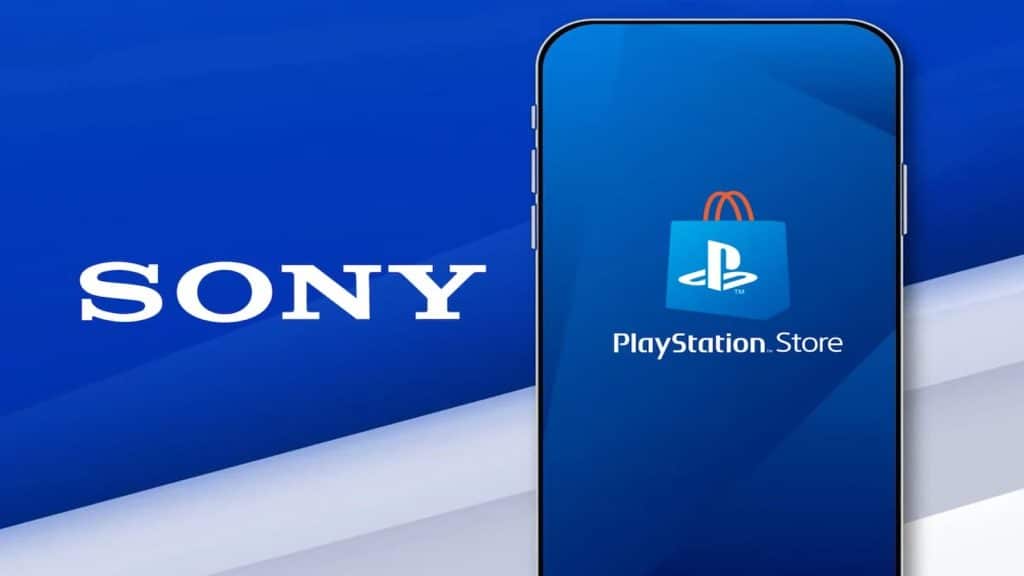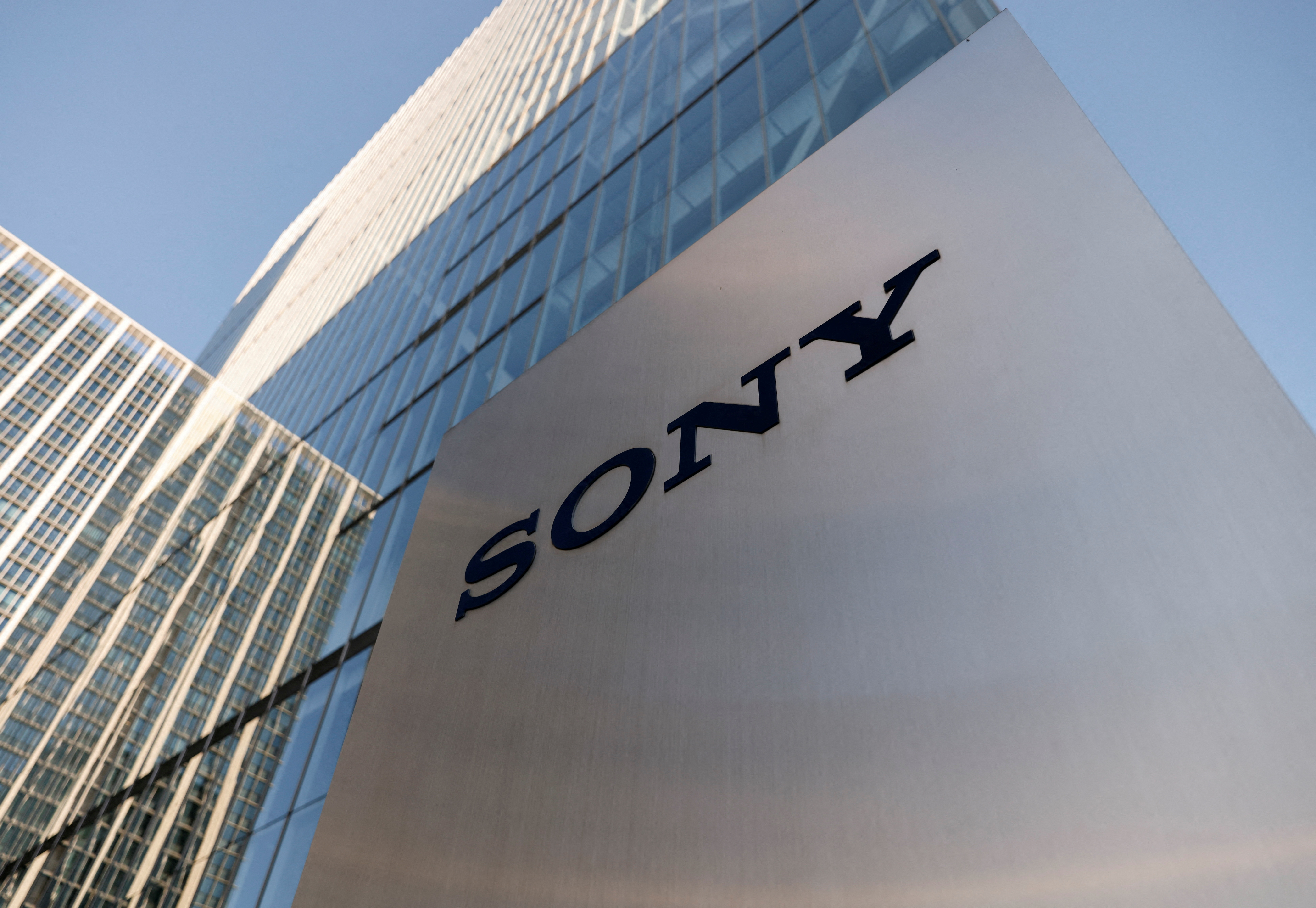Electronics
AI Learns To Outsmart Humans In Video Games – And Real Life in 2023

Driving around a French village in Gran Turismo, you might notice a Corvette trying to catch your slipstream.
Skilled players of PlayStation’s realistic racing game prefer to use the draft of an opponent’s racecar to speed up and overtake them.
But this Corvette driver isn’t being guided by a human — it’s GT Sophy, a powerful artificial intelligence agent created by Sony.
Gran Turismo players have been competing against computer-generated racecars since the franchise’s inception in the 1990s; the new AI driver released last week on Gran Turismo 7 is smarter and faster because it was trained using the most advanced AI methods.
“Gran Turismo had a built-in AI from the start, but it has a very narrow performance band and isn’t very good,” said Sony AI’s chief operating officer Michael Spranger. “It’s extremely predictable. It no longer entices you once you’ve reached a certain level.”
But now, he says, “this AI is going to fight back.”
When you visit an artificial intelligence laboratory at a university or a company like Sony, Google, Meta, Microsoft, or ChatGPT-maker OpenAI, it’s not uncommon to see AI agents like Sophy racing cars, slinging angry birds at pigs, fighting epic interstellar battles, or assisting human gamers in creating new Minecraft worlds – all part of the job description for computer systems trying to learn how to get smarter in games.
it’s not uncommon to see AI agents like Sophy racing cars
However, in some cases, they also attempt to learn how to become smarter in the real world. A University of Cambridge researcher who created an AI agent to control Pokémon characters argued in a January paper that it could “inspire all sorts of applications that require team management under conditions of extreme uncertainty, such as managing a team of doctors, robots, or employees in an ever-changing environment, such as a pandemic-stricken region or a war zone.”
While this may sound like a child arguing for three more hours of Pokémon Violet, game research has been used to advance AI research — and train computers to solve complex problems — since the mid-20th century.
Initially, AI was used to test winning strategy games such as checkers and chess. A new field of study now focuses on performing open-ended tasks in complex worlds and interacting with humans rather than just beating them.
“Reality is like a super-complicated game,” said Nicholas Sarantinos, who co-wrote the Pokémon paper and recently turned down a doctoral offer at Oxford University to launch an AI company to assist corporate workplaces in forming more collaborative teams.
Tarantino created an algorithm to analyze a team of six Pokémon in the web-based Pokémon Showdown battle simulator, predicting how they would perform based on all of the possible battle scenarios ahead of them and their comparative strengths and weaknesses.
That real humans behave very differently than fictional video game creatures,
Microsoft, which owns the popular Minecraft game franchise and the Xbox game system, has given AI agents tasks ranging from avoiding lava to chopping trees and building furnaces. Researchers hope that some of their discoveries will eventually play a role in real-world technology, such as how to program a home robot to do certain chores.
While it “goes without saying” that real humans behave very differently than fictional video game creatures, “the core ideas can still be used,” Tarantino says. “If you use psychological tests, you can use this information to determine how well they can collaborate.”
Amy Hoover, an assistant professor of informatics at the New Jersey Institute of Technology who developed algorithms for the digital card game Hearthstone, stated that “there is a reason for studying games,” but it is not always obvious.
“People don’t always get that the point is about the optimization method rather than the game,” she explained.
According to Vanessa Volz, an AI researcher at the Danish startup Modl.ai, which builds AI systems for game development, games also provide a useful testbed for AI, including some real-world robotics or healthcare applications that are safer to try in a virtual world.
“It can get overhyped,” she adds.
“It’s unlikely that there will be one big breakthrough, and everything will be shifted to the real world,” Volz predicted.
Sony launched its own AI research division in 2020
Sony launched its own AI research division in 2020 with entertainment in mind, but it has nonetheless attracted broader academic interest. Its research paper introducing Sophy was featured on the cover of the prestigious science journal Nature last year, with the journal stating that it could have implications for other applications such as drones and self-driving vehicles.
Sophy’s technology is based on an algorithmic method known as reinforcement learning, which trains the system by rewarding it when it gets something right as it runs thousands of virtual races.
“The reward will tell you that you’re making progress. ‘This is good,’ or ‘You’ve gone off the rails. “Well, that’s not good,” I say. Spranger explained.
At tournaments, the world’s best Gran Turismo players continue to finish ahead of Sophy, but average players will find it difficult to beat — and can adjust difficulty settings depending on how much they want to be challenged.
PlayStation players can only race against Sophy on a limited number of circuits until March 31, so it can gather feedback and return to testing. According to Peter Wurman, director of Sony AI America and project lead on GT Sophy, training AI agents on 20 PlayStations takes about two weeks.
“It will take some more breakthroughs and time before we’re ready,” he said.
And getting it onto real-world streets or Formula One track? That could take a long time.
Autonomous vehicle companies use similar machine-learning techniques, but “they don’t hand over complete control of the car the way we can,” Wurman said. “In a simulated world, no one’s life is in danger. You know exactly what you’re going to see in the environment. There are no cars on the road or anything like that.”
SOURCE – (AP)
Electronics
Dyson To Axe Around 1,000 Jobs In Britain

Dyson, a vacuum cleaner company, will slash approximately 1,000 positions in Britain as part of a global restructuring.

Dyson | NY Times Image
Dyson To Axe Around 1,000 Jobs In Britain
James Dyson, the inventor of the bagless cleaner, founded the company, which employs 3,500 people in Britain, including at its R&D facility in Malmesbury, West England.
On Tuesday, Chief Executive Hanno Kirner stated, “We have grown quickly and, like all companies, we review our global structures on a regular basis to ensure we are prepared for the future.” As a result, we are suggesting organizational modifications that may lead to redundancy.

Dyson | Joe Graham Image
Dyson To Axe Around 1,000 Jobs In Britain
“Dyson works in highly competitive global marketplaces where innovation and change are fast. We understand that we must always be entrepreneurial and adaptable – characteristics that Dyson has long valued.
SOURCE | AP
Electronics
Thousands Of People Are Waiting To Watch The GTA 6 Trailer 24 Hours Before Launch

GTA 6 ANNOUNCEMENT: Will the Grand Theft Auto 6 trailer smash viewing records? Given the huge interest even now, 24 hours before it’s scheduled to go live, it appears feasible.
Rockstar Games has released a video premiere for “Trailer 1” on YouTube, which includes a countdown to the game’s release on December 5 at 6 a.m. Pacific / 9 a.m. Eastern / 2 p.m. UK.
However, astute watchers observed the GTA 6 Trailer 1 length was released to expose a YouTube flaw. View the mobile video preview while unsubscribing from the Rockstar Games channel using the YouTube app’s search. Notice the “upcoming” tag on the bottom right; the runtime should appear over it.
There might be some spoilers ahead!
Tens Of Thousands Of People Are Already Waiting To Watch The GTA 6 Trailer
The GTA 6 Trailer 1 lasts one minute and 31 seconds. That should give you plenty of time to look at the game. We’ll even get a release date and platform information.
Surprisingly, tens of thousands have already lined up to watch Trailer 1. At the time of writing, about 24 hours before launch, 43,172 individuals were waiting to witness what could be the largest video game trailer of all time.
If you want to join in on the fun, roughly 2,000 people are watching IGN’s own GTA 6 trailer countdown and actively chatting right now.
When Rockstar announced a December release date for the GTA 6 trailer in November, it added, “We are very excited to let you know that in early December, we will release the first trailer for the next Grand Theft Auto.” We look forward to sharing these experiences with you all for many years.
“We have had the opportunity to create games we are truly passionate about thanks to the incredible support of our players worldwide — none of this would be possible without you, and we are so grateful to all of you for sharing this journey with us.”
Tens Of Thousands Of People Are Already Waiting To Watch The GTA 6 Trailer
“In 1998, Rockstar Games was founded on the idea that video games could come to be as essential to culture as any other form of entertainment, and we hope that we have created games you love in our efforts to be part of that evolution.”With anticipation at an all-time high, IGN reports that Rockstar appears to have revealed the GTA 6 Trailer 1 release date on a GTA Online T-shirt sold nearly a year ago.
GTA 6 has been rumored since the release of Grand Theft Auto 5 a little more than a decade ago. It was mentioned in passing in a 2020 Kotaku article on Rockstar’s efforts to combat crunch culture at the company, and it was confirmed in a press release in 2022, with the studio stating that development was “well underway.” Later that year, in-development footage from the game was leaked in a large breach, leading to the arrest of a British teenage hacker in connection with the crime.
Since early in 2023, when publisher Take-Two Interactive expected large financial gains in that fiscal year that would be difficult to achieve without the boost from the enormously profitable series, a release window between April 2024 and March 2025 has been speculated.
Tens Of Thousands Of People Are Already Waiting To Watch The GTA 6 Trailer
“GTA 6” is the next installment in the Grand Theft Auto series. Rockstar Games are developing it, and it is highly anticipated by gamers all around the world. The game is expected to have a large open environment, intense gameplay, and cutting-edge graphics.
While there are few specifics about the game, rumors say it will be set in a fictionalized depiction of a modern-day metropolis. “GTA 6” has garnered great enthusiasm and intrigue among fans and the gaming world as one of the most anticipated releases in the gaming industry.
SOURCE (IGN)
Electronics
The $7.9 Billion Lawsuit Against Sony For PlayStation Store Prices Doesn’t Make Sense

While that makes for a catchy headline, I’m left scratching my head, trying to figure out what a very expensive lawsuit against Sony for PlayStation Store prices is trying to show.
Sony was sued “on behalf” of 9 million customers in the United Kingdom who purchased games from the PlayStation store last year. A consumer advocate named Alex Neill has filed a lawsuit against Sony, claiming that the customers are entitled to $7.9 billion.
The assertion is similar to what we’ve heard recently from Epic in its struggle against Apple and Google’s app stores, which take a 30% share and don’t allow other retailers on their platforms. Almost the same thing is being said here. Sony charges developers and publishers a 30% share, claiming users have paid higher costs.
According to Sony, the complaint is “flawed from start to finish.” However, a recent development indicates that the case will not be dismissed, and Sony will have to confront the lawsuit.
The $7.9 Billion Lawsuit Against Sony For PlayStation Store Prices Doesn’t Make Sense
Last year, Alex Neill held a Reddit AMA in which all of the case’s glaring faults were exposed, resulting in non-stop roasting and few responses from Neill.
First, there is no proof that Sony’s 30% cut harms consumers, given that the cost is passed on to developers and publishers. This might make sense if Sony titles were 30% more expensive than competitors, but pricing parity throughout the industry, including with rivals like Xbox, demonstrates that this is different.
This may be viewed as a broader industry issue, but the company is singled out here. And anti-competitive rules have nothing to do with controlling how much Sony can take from publishers. Furthermore, it is ultimately up to the publishers to decide the pricing range for their games, which is why some titles are still $60 while others are now $70. Sony does not compel those prices.
We’ve also seen precedence for this, with Epic failing to obtain a verdict against Apple and its own 30% cut in the app store. And, according to industry standards, every company except Epic charges that 30% cut.
The $7.9 Billion Lawsuit Against Sony For PlayStation Store Prices Doesn’t Make Sense
And, with that reduced cut, Epic frequently has pricing that is equal to or the same as its competitors, with the cut being primarily an enticing point for publishers (this has had mixed effects, with the Epic Games Store still being profitable after several years).
Losing a $7.9 billion lawsuit would be a major setback for the company. That is more than double what it paid for Bungie and more than Microsoft paid for Bethesda. However, when it comes to the meat of this case, there is none. It consists of two slices of bread. Perhaps one slice.
The legal system and its understanding of the gaming sector can be unpredictable, but the litigation will proceed. However, in its current form, it is quite illogical.’
SOURCE – (forbes)
-
News3 weeks ago
The Biden Administration can go Ahead With Student Loan Forgiveness, Says a Federal Judge.
-
News3 weeks ago
Tesla Recalls 27,000 Cybertrucks Due To A Rearview Camera Issue
-
World3 weeks ago
Uber Hires Yandex Spinoff Ride-Hail and Autonomous Delivery With Avride
-
Tech3 weeks ago
Accenture and NVIDIA Collaborate to Enhance AI Implementation.
-
Tech3 weeks ago
Meta has started the Facebook Content Monetization Program.
-
Election News3 weeks ago
Chief Operating Officer Of Truth Social’s Parent Company Resigns





















































